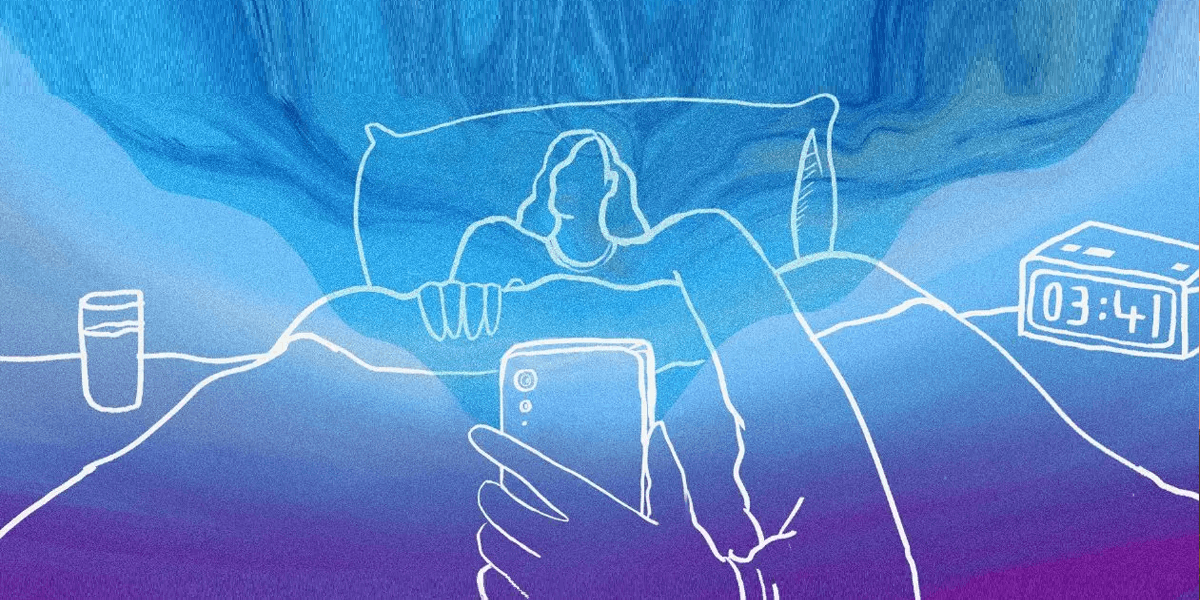Getting better sleep
Ghazal Yadav

GHAZAL YADAV asks if we have been sleeping long enough and soundly enough. She explores the relationships between work-life balance, toxic productivity, FOMO, social media, and declining sleep quality around the world.
It is no secret that sleep has slowly been pushed lower and lower on society’s priority list of needs. In the United States, adults average 6.8 hours of sleep, a stark difference from 1942, when the average was 7.9 hours. Sleep disorders are on the rise, and melatonin sales in the US have increased by almost 500%, with sales of 62 million USD in 2003 compared to 378 million USD in 2014.
At the onset of 2023, many people probably added “sleeping more” to their New Year’s resolutions. As with many of the items on their list, however, this will be easy to give up quite early into the year. To truly reprioritize sleep in our lives, we need to examine the root of the problem: sleep is no longer considered a worthy need.
The concept of work-life balance has dramatically transformed over the past few decades. “Leaving work at work” and fully engaging in our personal lives when we’re at home seems like a distant privilege today. The advent of the smartphone has let work pressure seep into all hours of the day, and most people are expected to remain mentally clocked in after leaving work.
Despite the fact that we all face the repercussions of a perimeter-less workplace environment, the modern-day tendency to serve one’s self-interests pushes us to compete with one another and propagate the system, thus compounding the problem. Not only are we now bogged down by an eternal workload, but we feel obliged to cope with it alone. It is now the individual’s responsibility to run the career treadmill and compete, or accept defeat and fall behind. In today’s hypercompetitive environment, choosing to limit one’s ambitions is a death sentence.

What has accompanied this shift in society’s perspective on work is a culture of toxic productivity. Harsh, quantity-driven output metrics now dictate how we spend our time. Life coaches, self-help books, media, etc., all now emphasize how to squeeze out every last bit of work from one’s day, creating the illusion that without quantifiable results life has no inherent meaning. Even the paradox of relaxing productively is now a commonly accepted idea.
This is where the issue of sleep being of lesser importance stems from. Why sleep when we can spend the same time making more money? Why sleep when we can study harder? Why sleep when we can spend that time getting ahead of our peers?
Most college students, including myself, are familiar with the infamous College Tripartite Triangle. This is the idea that a student will only be able to attain two out of three main priorities: good grades, enough sleep, and a social life. It is ingrained in us from quite early on that there will never be a point of balance, and that we must sacrifice something in order to live the life we dream of.
Maintaining good academic standing is a non-negotiable priority for most, leaving the choice between sleep and socializing. The prevalence of low self-esteem and loneliness issues in this young adult age group makes students more susceptible to the fear of social exclusion, more colloquially known as the Fear of Missing Out. FOMO doesn’t just encompass the idea of missing out, but creates a sense of “compulsion to maintain social connections.” Naturally, with only 24 hours in the day, college students facing the Tripartite Triangle dilemma find it easiest to compromise on sleep.
In this state of constant stress, social media is a convenient outlet. The ability to easily engage our mind in something so enticing that we forget our ongoing struggles creates a cycle of addiction. Social media has shifted from being a means of connection to a means of escapism. Moreover, it seems to solve the FOMO dilemma in that it offers the illusion of staying perpetually connected and up to date with what our peers are doing.
Unfortunately, social media use, especially to quench FOMO, can affect sleep patterns. Those with FOMO are more likely to check social media within 15 minutes of going to sleep. When coupled with the addictive nature of such apps, it is normal that usage extends into the late hours of the night.
Exposure to the blue light emitted by screens at such hours disrupts the production of melatonin. This hormone is integral to our sleep schedule, reducing alertness and signaling to our bodies that it is time to sleep. And in addition, continually stimulating the brain so late into the night makes it harder for the body to wind down. Such high levels of cognitive arousal, especially when we are physiologically preparing to sleep, disrupt the sleep cycle.
Prioritizing sleep is a crucial first step
to
spending time at work more
efficiently,
thus making it easier to engage in
meaningful social interactions and remain fully
present
for our loved ones in the personal sphere of life.

So, as you plan the changes you have decided to make in 2023, remember to evaluate what systems have prevented you from being able to achieve them until now. Take the time to pause, reflect, and reprioritize. Will you sacrifice sleep for the mirage of productivity? Will you let your fear of social exclusion prevent you from achieving balance in your life? Prioritizing sleep is a crucial first step to spending time at work more efficiently, thus making it easier to engage in meaningful social interactions and remain fully present for our loved ones in the personal sphere of life. In 2023, let’s make sleep high on our priority list.